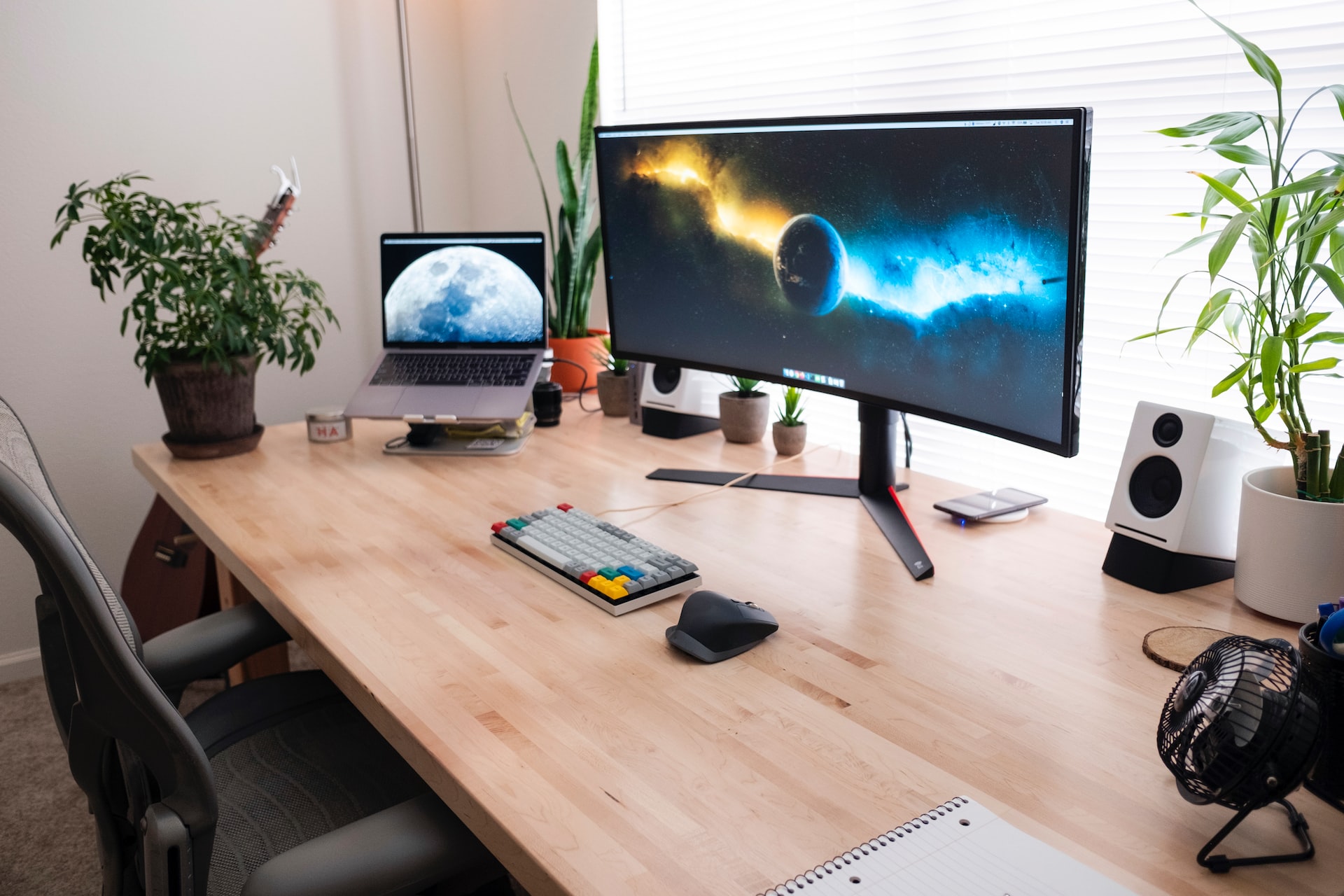
The Workstation: What Is It and Do You Need One?
It is not uncommon to see the workstation label on desktops and even on some powerful laptops these days, but what does the term signify? More importantly, should you care for them? The answer depends on multiple factors with the chief being usage. What do you use your computer(s) for? Are you looking to buy a computer for personal work or several of them to set up your office?
Since the answers will be different depending on who is reading this, we will also take a different approach here. Let’s look at what workstation computers generally are and what kind of customers stand to benefit the most from their use. That should provide everyone with a clear idea about them and whether they have any use for workstations or not.
What is a WorkStation Computer?

In the most classic sense of the term, a workstation computer is a single-user, professional desktop with considerably more powerful, specialized, and expensive internal hardware than anything you would find inside the average personal computer. This old definition of workstation computers is no longer as valid as it used to be, thanks to how much technology has evolved in the last five years or so.
Nowadays, a personal gaming computer can be bigger, more powerful, and more expensive than entry-level or even mid-range workstations. The scales tip on the other side if we are discussing server-class, industrial computers, but they are not single-user workstations. On top of that, the workstation computer is not just limited to the giant desktop format either. There are powerful mini desktop workstations and even workstation laptops on offer from big brands like Lenovo.
These new workstations are still just as powerful as their users need them to be. They come equipped with specialized, professional-grade hardware, but do not consume anywhere near as much energy as the power-hungry workstations from just a few years back. The portability factor adds an entire new dimension to their useability since the idea of a mobile workstation was foreign not too long ago.
Requirements Over Standard Specifications
The internal hardware specifications of a workstation computer will vary, depending on the kind of tasks it will need to handle, as well as the timeline. Technology tends to become outdated rather quickly, which means that hardware which was considered high-end for a workstation computer in 2018 will not even be considered entry-level for workstations today.
Therefore, it is important not to define workstations by contemporary hardware. Instead, they should be defined by the kind of workload that they are expected to handle. Although the scale of the tasks remains variable, a workstation computer should at least:
- Meet the recommended hardware requirements for running applications that the user needs it to.
- Have specific hardware components that are suited for the kind of work which the user intends to use it for.
- Be capable of running 24×7 for days, weeks or even months.
- Have enough endurance to handle constant, heavy workloads for the entirety of its on-time.
Note that modern workstations may not need to handle heavy workloads 24×7 for months unless they are to be used as local servers. However, the endurance must still be present, or it cannot be called a genuine workstation. All work computers handle more workload for longer periods than average personal computers, even when the work is more of a professional nature than industrial. The need for work-specific hardware, on the other hand, has not changed and it remains a core facet of any workstation computer.
Common Uses for the Workstation Computer

This is the part where readers will realize whether they have any need for a dedicated workstation or not. Before we get started on them, it should be made clear that the workstation and the server are not identical, although workstations may act as local servers for small businesses.
As mentioned earlier, a workstation is a single-user professional computer with optional multiuser compatibility, while servers are industrial PCs used by multiple clients simultaneously and remotely. The workstation is a more customized and often personalized professional computer meant to serve the professional needs of one user in particular. Now that we have that out of the way, let’s get acquainted with some of the most common reasons why professionals invest in workstations.
3D Rendering
Unless you are familiar with the ins and outs of high-quality 3D modeling and rendering, you might be surprised by how demanding these tasks can be. Even the task of rendering a minute of highly detailed animated video in 4K resolution can make powerful gaming computers stutter and fail. This is where specialized workstations prove themselves as indispensable. If a workstation has been designed specifically with the processing power necessary to support video rendering in 4K, it will be able to complete the task without too much of a hassle.
The same computer might not be able to handle high-resolution games in high settings because it was not designed to play those games. Instead, it was designed to let the user handle UHD video rendering. Architects, civil engineers, game developers, animation artists, special effect specialists, CGI technicians, and others belonging to similar or related fields of work need workstations that are equipped sufficiently to render what they need.
Image, Music, Audio & Video Production

Next up, we have photographers, videographers, and audio/music/video producers because they use workstations more often than any other group. This is largely because their work will often involve both rendering and editing on the same PC. The good news is that any PC that has been designed to handle rendering workloads can easily handle any editing task that you may need it to complete.
Make no mistake, mixing music and the postproduction of videos are tasks that need a lot of computational power as well, but any workstation capable of rendering high resolution 3D models and animations should be up to the task. Graphic artists and web designers also use specialized workstations, although they don’t really need as much power in their computers as the others. However, they would benefit more from a workstation laptop that comes with a pressure sensitive vivid touchscreen and long battery life, rather than pure processing power.
